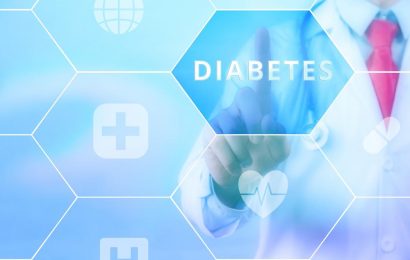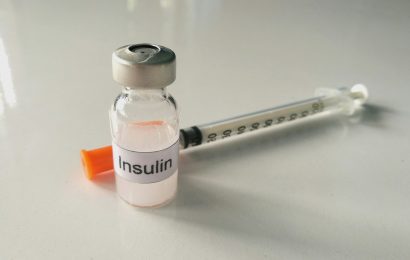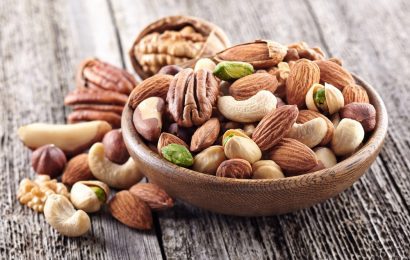I wrote about this several years ago, but I’ll say it again: If you want to control Type 2 diabetes better, try consuming vinegar before meals and at bedtime. Start today! It may help lower post-meal and fasting glucose levels.
What is apple cider vinegar good for?
Research has indicated that apple cider vinegar has a variety of potential benefits, including:
• Lower after-meal glucose levels
• Reduced fasting morning glucose when taken at bedtime
In a study from Arizona State University, subjects took a drink of 20 grams of apple cider vinegar, 40 grams of water, and 1 teaspoon of saccharin with each meal. (I think stevia might be better than saccharin.) Those with insulin resistance who drank the vinegar had 34 percent lower postprandial (after-meal) glucose compared to controls.
These postprandial benefits had been found before. It was thought that vinegar might slow the absorption of carbohydrate into the blood, or slow the breakdown of starches into sugars. This effect would mimic the effect of drugs like acarbose (brand name Precose).
But the 2004 study cited above reported that vinegar reduced postprandial glucose more in subjects who were highly insulin resistant. The authors say this result shows that vinegar increases insulin sensitivity, perhaps acting similarly to metformin.
Now studies have found that vinegar at bedtime reduces fasting blood glucose in the morning, indicating that vinegar might promote insulin production, like nateglinide (Starlix).
Pretty amazing that a simple chemical like vinegar (acetic acid) could have the benefits of three different classes of diabetes drugs, and all for a few cents a dose! It’s likely good for both Type 2 and Type 1, especially for lowering postprandial glucose. And postprandial glucose levels account for 30 percent to 70 percent of A1C values. Vinegar has got to be the most cost-effective medicine in history, but most people with diabetes still aren’t taking it.
How can apple cider vinegar help lower blood sugar?
How can vinegar be so powerful? I think it has to do with our ancestral diet. We used to eat carbohydrate in highly complex forms that took a long time to break down in the intestines. Some of that material may have converted to vinegar before being absorbed. Vinegar may be a signal to our bodies to produce insulin and not resist it. Today’s highly refined carbohydrates are absorbed long before they start breaking down. Our bodies don’t get the ancestral signals that carbohydrates are coming, so they’re not ready for them. Drinking a bit of vinegar might trigger the hormones and transmitters that are now missing the boat.
This theory might be nonsense, but the benefits of vinegar are proven reality. In response to another of my vinegar articles, more than 30 readers posted comments about how vinegar had helped them reduce their blood glucose and lose weight. There were no dissenting comments. Go back and read them here.
Reader apple cider vinegar recipes
Readers mostly use apple cider vinegar, which has been touted for centuries for many health benefits. However, wine vinegar, rice vinegar, and white vinegar may be equally good. They just haven’t been studied. Balsamic vinegar apparently is not good; it’s too sugary.
The optimum vinegar dose hasn’t been established. Most reports have people taking 1–3 teaspoons before each meal containing carbohydrate, and at bedtime. It might be best to take vinegar with the first bite of the meal, to prevent the reported side effects of nausea and heartburn. But these should be rare at such low doses, anyway. And to protect your enamel, remember to rinse your teeth and mouth after drinking vinegar. You can also take vinegar tablets, which are cheap and widely available.
Here are some recipes readers sent:
Paul V: Half a glass of water with a tablespoon of cider vinegar
Kelly: Sliced cucumbers and cold vinegar in a bowl
Vicki: Two tablespoons of vinegar with one tablespoon of honey
Betty and Deb: Apple cider vinegar, extra-virgin olive oil (and optionally, mustard) as a salad dressing
Brecklundin: Apple cider vinegar in iced tea with lemon or lime and stevia
Juli: A glug of apple cider vinegar, a spoonful of honey, and the rest of the glass full of water
David: One tablespoon of apple cider vinegar in 1 cup of water, with a few drops of stevia
I can add that rice vinegar, sesame oil, and honey makes a great Thai salad dressing.
If you’re spending money on medicines to reduce postprandial glucose levels, you are missing a good possibility here. I’m betting many people with Type 2 will be able to get off some medicines or significantly reduce them. People with Type 1 might be able to lower insulin doses. Most can probably achieve lower A1Cs. Please let us know how it goes. And speak to your doctor about it.
Looking to learn about more foods that may help with diabetes? Read “Bitter Melon, Diabetes,” “Leaves and Fruits for Diabetes,” “Turmeric and Diabetes: 10 Ways Turmeric Can Help” and “Cinnamon and Diabetes: An Update.”





